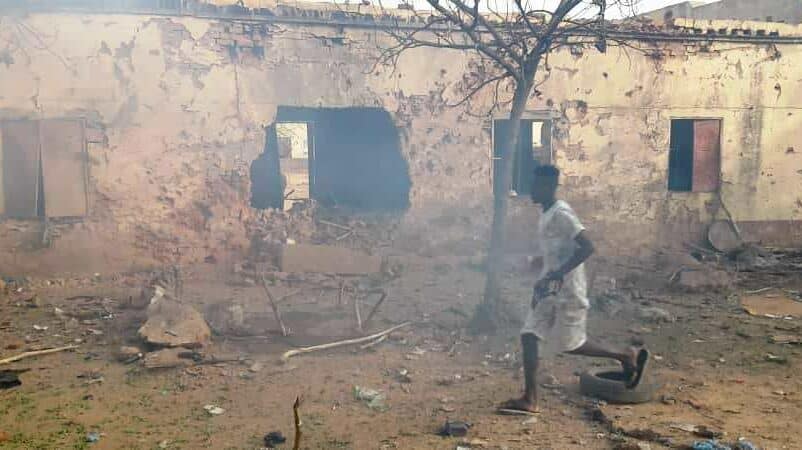The UN Office of the High Commissioner for Human Rights (OHCHR) on Friday said that more details are emerging of atrocities committed during and after the fall of El Fasher to the Rapid Support Forces (RSF) in Sudan.
Speaking in Nairobi, Kenya, OHCHR spokesperson Seif Magango said the office had received horrendous accounts of summary executions, mass killings, rapes, attacks on humanitarian workers, looting, abductions, and forced displacement since the RSF made a major incursion into the city on October 23.
Magango explained that OHCHR had received testimonies from people who fled El Fasher in terror and survived the harrowing journey to Tawila, as well as shocking videos and other images depicting serious violations of international humanitarian law and gross human rights abuses.
The OHCHR estimated that the death toll among civilians and those rendered hors de combat during the RSF attack on the city and its exit routes — as well as in the days following the takeover — could amount to hundreds.
Magango further said the office had received distressing reports of the killing of sick and wounded individuals inside Al-Saudi Maternity Hospital and at various premises in the Daraja Oula and Al-Matar neighborhoods, which had been temporarily serving as medical centers. He said the extremely grave allegations raised urgent questions about the circumstances of the killings in places that should have been safe for anyone in need of medical help. There were also alarming reports of sexual violence.
Humanitarian partners reported that at least 25 women were gang-raped when RSF forces entered a shelter for displaced people near El Fasher University. In addition, killings of humanitarian workers and local volunteers supporting vulnerable communities in El Fasher had been documented.
Rolando Gómez, Chief of the Press and External Relations Section at the United Nations Information Service in Geneva, chaired a hybrid press briefing on Friday attended by representatives and spokespersons of the OHCHR, World Health Organization (WHO), World Food Programme (WFP), United Nations Development Programme (UNDP), and the International Federation of Red Cross and Red Crescent Societies.
UN High Commissioner for Human Rights Volker Türk reiterated his call on states with influence over the warring parties to urgently end the violence and halt the flow of arms fueling the conflict.
Dr. Teresa Zakaria, Head of the Humanitarian Operations Unit at WHO, said the agency was alarmed by continuing attacks on healthcare facilities in Sudan, including the killing on October 28 of more than 460 patients and their family members in El Fasher. On the same day, six health workers were reportedly abducted.
Zakaria said the Al-Saudi Maternity Hospital had been attacked five times in October alone.
“As of the past few days, following the capture of El Fasher, there is no longer any humanitarian presence in the city, and access remains blocked. Attacks on healthcare are becoming deadlier,” she said. “WHO condemns these heinous attacks in the strongest possible terms and calls for respect for the sanctity of healthcare, as mandated under international humanitarian law. No patient or family member should fear for their lives when seeking medical care, and health workers should not risk injury or death while saving lives.”
The attacks on hospitals, health centers, and ambulances have deprived millions of Sudanese of urgent medical care. Less than 50 percent of health facilities across the country are still operating at pre-conflict levels, while as many as 40 percent are not functioning at all.
“People are dying because of the lack of access to basic healthcare and medicines,” Zakaria stressed.
WHO called for an immediate cessation of hostilities in El Fasher and across Sudan, and for unimpeded humanitarian access. The agency said it was mobilizing medical and emergency supplies — including maternal and neonatal services and acute malnutrition treatment — and stood ready to deliver them to El Fasher. It also urged the international community not to abandon Sudan at this dark hour.




